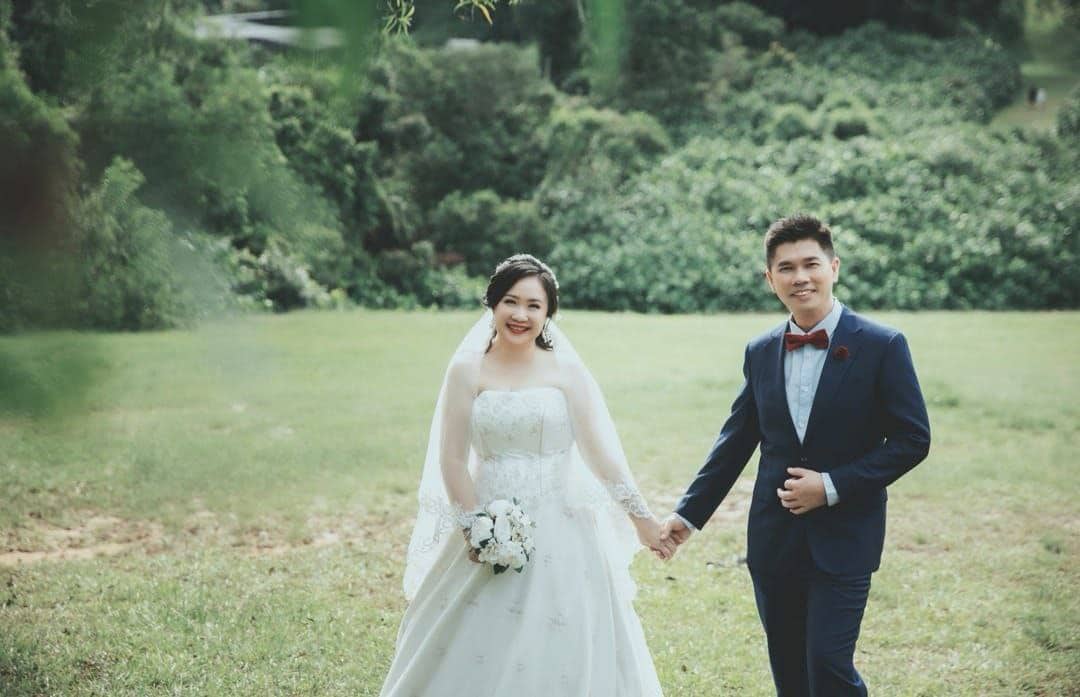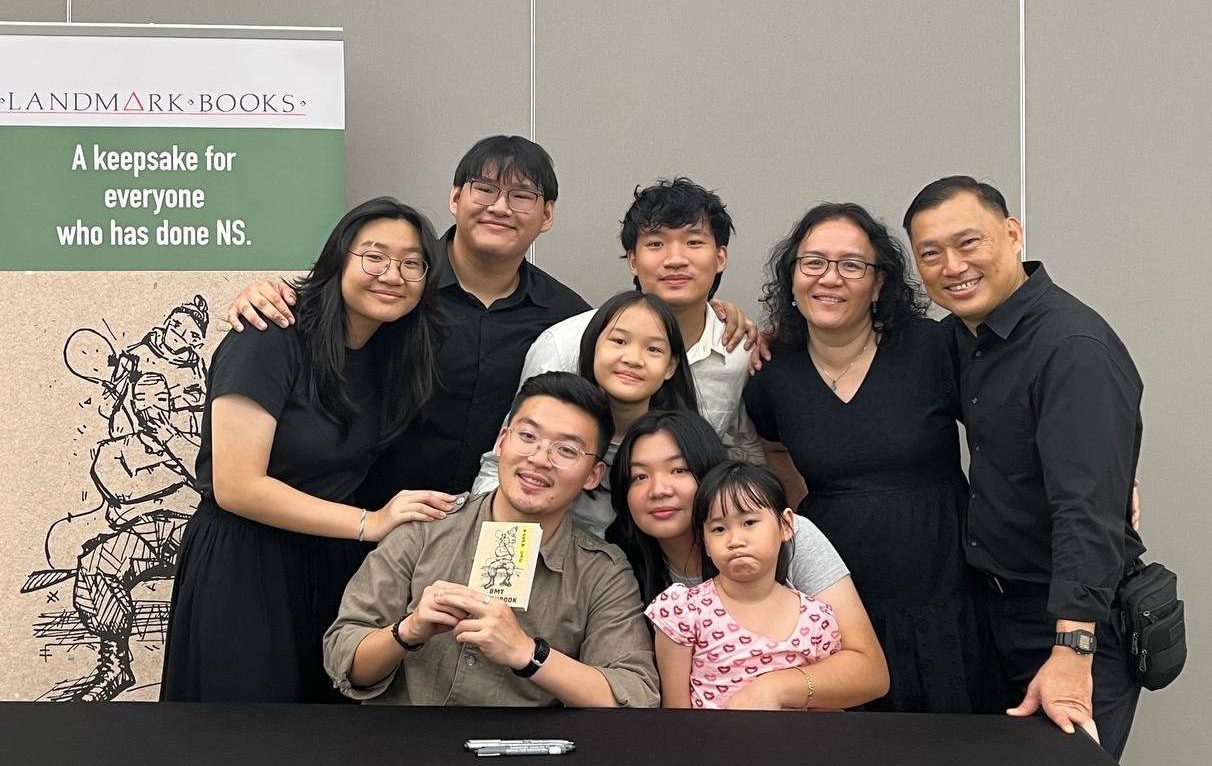“What are you doing in the house of your father’s killer?”: A genocide survivor from Rwanda finds unexpected healing in Singapore
This Holy Week, Salt&Light brings you stories of those who have "died to self", and in the process found Life in God.
by Janice Tai // April 6, 2023, 4:45 pm
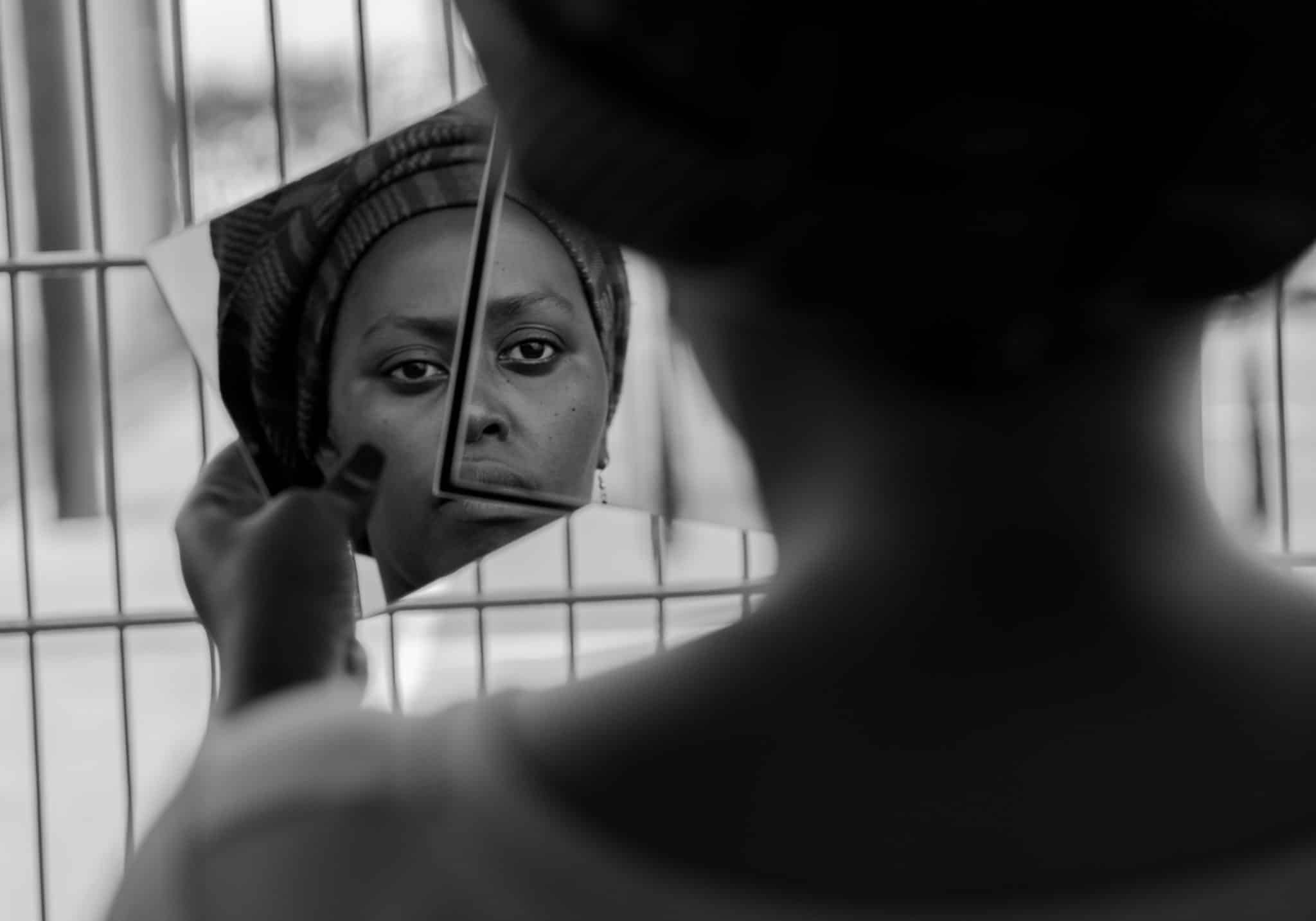
A broken Pacifique, scarred and traumatised by the genocide against the Tutsi in Rwanda in 1994 that killed her father and siblings, has found healing in Singapore. All photos courtesy of Pacifique Mukaseti.
On the night of April 6, 1994, a plane carrying the then President of Rwanda, and his Burundi counterpart – both Hutus – was shot down by a rocket.
The death of the two African Presidents ignited several weeks of intense and systematic massacres where the ethnic Hutu extremists slaughtered members of the minority Tutsi community, as well as their political opponents, in retaliation.
Pacifique Mukaseti, who lived in a village in a southern province of Rwanda, was seven years old then. She heard about the killings and burnings on the radio, and overheard her parents discussing these events in urgent but hushed whispers. Her curiosity was piqued.
“I didn’t know the severity of the situation and was excited at the possibility of running away from our small community – the only one I had ever known – to discover something new,” Pacifique told Salt&Light.
Signs of trouble
Her father, however, knew that serious trouble was brewing.
Their neighbours also felt uneasy and began streaming into their house for prayers. Too poor to have running water or electricity, her Christian family and neighbours would gather around a fire after dinner and sing worship songs from a praise and worship book.
“The situation became so scary that the only thing we did was to pray,” said Pacifique, whose father was a pastor.
“God if You save me from this machete, I will serve You for the rest of my life.”
Eventually, Pacifique’s anticipation at leaving her community to explore new grounds was fulfilled when her parents decided to send her and her older sister away to their aunt’s house for their safety.
It was something she looked forward to as they did not have much food at home, while her aunt’s place had biscuits and her favourite chocolate.
Her parents were in a far more sombre mood; before they left, her father taught her a ‘survival prayer’: “God, if You save me from this machete, I will serve You for the rest of my life.”
Many Rwandans at the time kept machetes around the house, for fear they would be attacked at roadblocks. The militia set up roadblocks to check the ID cards of people passing by and if the cards listed their ethnic group as Tutsi, their lives were in danger, recounted Pacifique.
800,000 slaughtered, 200,000 women raped
In the genocide against the Tutsi in Rwanda, more than one million people were killed and some 200,000 women raped over a period of 100 days in 1994.
Thankfully, children did not have their ID cards yet and Pacifique’s parents had coached her and her sister on what to say when they were stopped at the roadblocks.
When they managed to reach their aunt’s house, Pacifique felt safe in the company of her aunt and her Swiss husband.
“To us, the white man was untouchable. It was only when the guns came and I saw him shivering in a corner that fear really crept in,” she said.
Hiding in the house was no longer tenable, so they spent their nights hiding outside in the bush or in the toilets.
“We saw people caught and killed in front of our eyes as we hid. There was no time to blame God or ask Him any questions. Short prayers were all we could manage. I kept repeating the prayer my father taught me,” said Pacifique, who had 11 siblings.
Father and six siblings killed
One day, her older brother came by their aunt’s house and informed them that the extremists had razed their village to the ground and killed everyone who was found there, including their father and his five siblings.
“Who knew that the day we left home was the last time I would see them,” said Pacifique. “I became so numb that there was no room for feelings; I could not even eat the chocolate that I once loved.”
Her older brother who had delivered the news did not stay for long and fled to a neighbouring country. Pacifique heard later that he never made it, but was killed along the way.
By then, the Swiss embassy had arranged to evacuate her aunt and her Swiss husband. Before she left, her aunt pleaded with the Red Cross to come by to rescue her nieces. The Red Cross took them to an orphanage filled with other refugee children from Kigali who were to be evacuated. While they were housed temporarily there, the killings and rapes continued.
Meanwhile, an alert Pacifique happened to overhear the names on the list of children that the Red Cross would be evacuating and realised that her name was not on it as she was not from Kigali. Her younger sister and baby brother were also with her at that time.
Hidden cargo onboard a logistics truck
Desperate to survive, Pacifique wrapped her baby brother in a skirt – the genocide mainly targeted men and boys as they were seen as threats – and pulled her younger sister with them to hide in a truck filled with clothes and firewood. Pacifique guessed correctly that the logistics truck would follow the evacuation vehicle for the Kigali children.
The logistics truck made its way to the neighbouring country of Burundi before reaching the Democratic Republic of the Congo. The other children were further evacuated from Congo to Europe but Pacifique and her siblings, who were hidden cargo in the truck, found themselves stranded in a camp of makeshift tents in the middle of a forest in the Congo.
“Everyone was in a mess but there were no therapists or anything. We tried to move on.”
The conditions there were dire. There was no food and the children were in danger of dying from starvation, or from deadly snake bites, or they could be killed by the many perpetrators of the genocide who had also fled to the Congo.
All day long, Pacifique and her young siblings were confronted by the din of shooting and machete sounds.
When the genocide ended, an agency under the United Nations reunited Pacifique and her two siblings with the rest of her surviving family members in Rwanda.
The broken family had to start over again, as everything they owned was gone. With the family traumatised and in poverty, Pacifique’s mother worked as a cook in an orphanage and singlehandedly tried to bring up her remaining five children.
Pacifique and her siblings went back to school, but found themselves struggling.
“Everyone was in a mess but there were no therapists or anything. We tried to move on,” Pacifique told Salt&Light.
The education programme that supported genocide survivors required them to meet certain grades in high school if they were to continue receiving financial support for university. Overwhelmed by trauma, Pacifique could not meet the requirements.
Too busy for church
Instead, she moved to Kigali where she got a job as an actress to pay her way through university.
Since secondary school, she had loved acting. She was cast in a BBC drama serial and found some fame for her role in it.
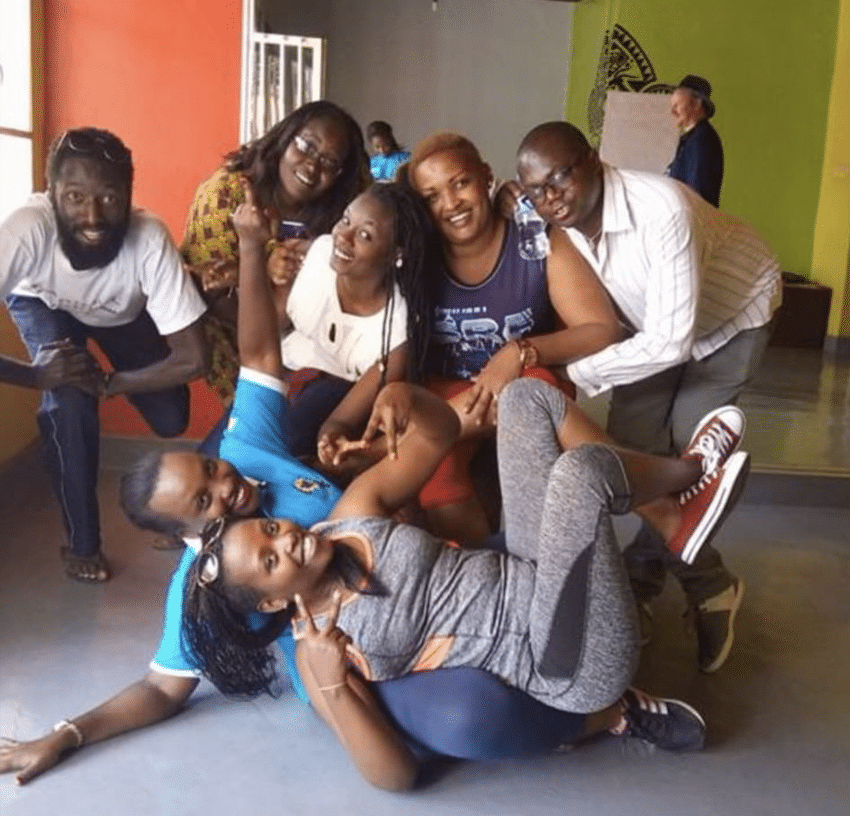
Pacifique (front) with fellow actors during rehearsals.
“I became too busy for church. God used to be the one who provided for me and who would fight my fights. I forgot about God being my Provider and started being my own provider. I relied on myself and made my own decisions,” recalled Pacifique.
She later became an acting teacher and consultant with a British charity.
Her job enabled her to travel around the world and meet people from different cultures. Along the way, she also got married.
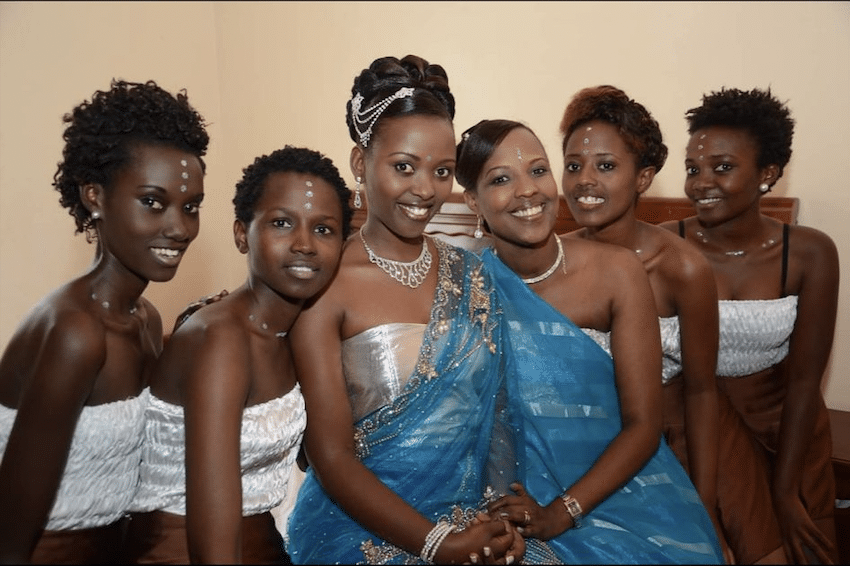
Pacifique had a traditional wedding.
“My life turned out quite well, but deep down I longed for deeper intimacy with God,” Pacifique told Salt&Light.
She realised that her relationship with God had been a transactional one.
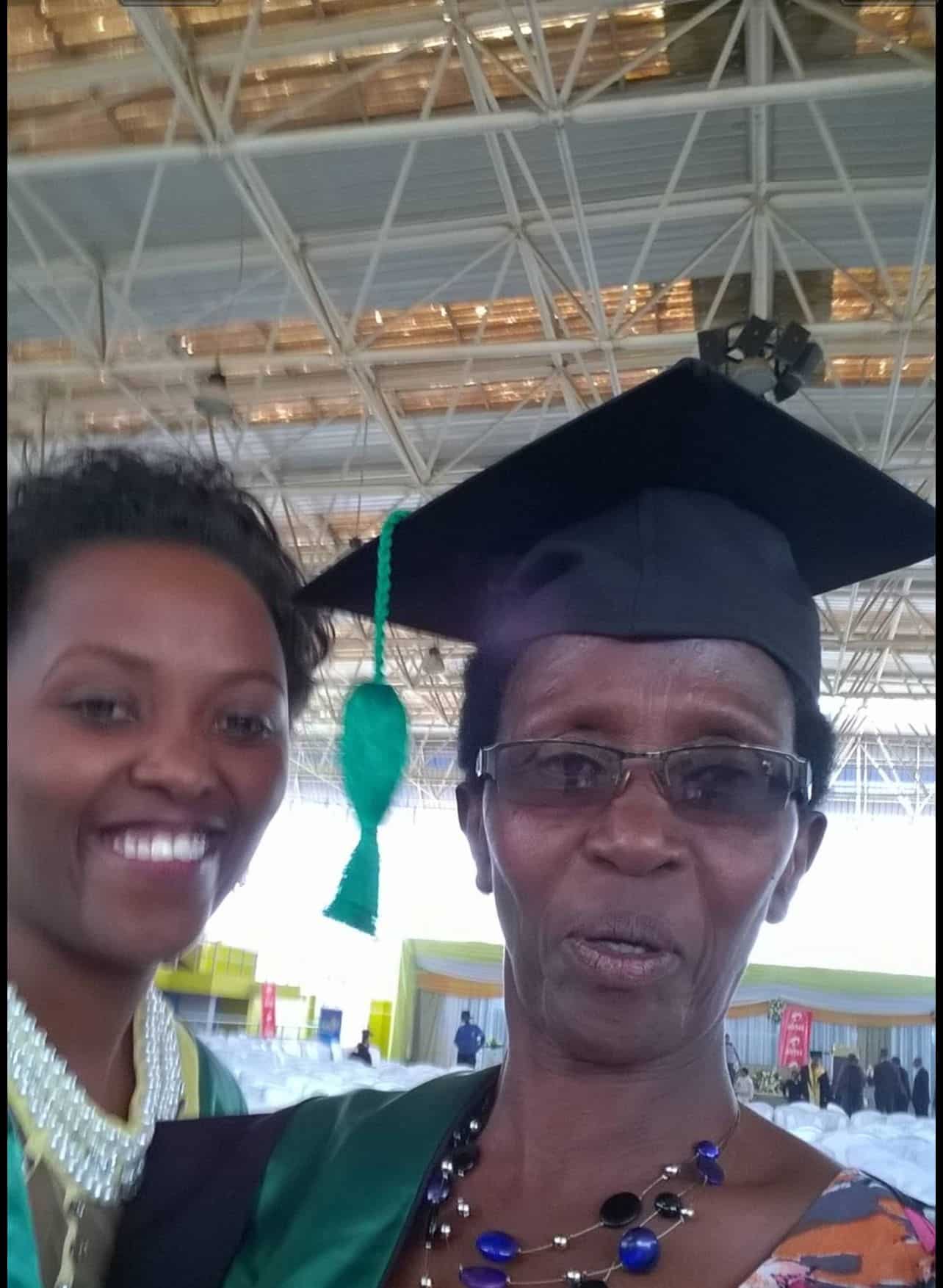
Pacifique with her mother on her graduation day.
“The God that I had learnt about since young seemed scary,” she said. “So when He gives us 100, we’d better give Him back 50.”
Vows and forgetfulness
Whenever she met with trials in her life, she would revert to the same pattern of promising to serve Him if He delivered her out of the trial, only to forget about her promise when she was in the clear.
Her first pregnancy, for instance, was difficult; she was in labour for 24 hours.
She remembered praying: “God, if You bring me out of this delivery room, I will work for You for the rest of my life!”
“These are the pastors who served you all their lives, why didn’t You protect them?”
Yet after it was over, all credit went to the doctors and life went on as usual for her.
Each time Pacifique went to church, she would leave feeling sad and tired.
Being a genocide survivor was a huge burden for her. Whenever the annual national commemoration day for the genocide came around in April, it would be so traumatic for her that she would land in hospital.
She could not talk about it with the therapist treating her, so they would put her to sleep and hope that she would be calmer when she awoke, she said.
“When we put flowers down and remembered the dead, I would notice that the cemetery was filled with bodies of pastors. I felt that God wasn’t fair.
“These are the pastors who served You all their lives, why didn’t You protect them? They leave behind children who are also so poor and uneducated.”

Pacifique on her way to the genocide memorial.
As the years went by, she began taking vacations just to leave the country during the commemoration period. It did not help that she grew up in a culture which stigmatised emotion as a form of weakness.
“They would say to me, ‘Why are you crying? Life’s not fair, so stop being a baby. Own it and move on.’ I tried to hide the trauma I felt by covering it all up, including putting on makeup to put my best face forward,” she said.
Coming to Singapore
In 2019, Pacifique’s husband was sent to Singapore for work. As she did not have a job in Singapore, she took the time to pray and ask God what He wanted her to do in this foreign land.
God sent many believers into her life, including a Tung Ling Bible School alumnus who invited her out for breakfast in 2020. She spoke of love and salvation, and even asked if she could pray for Pacifique right in the restaurant they were in.
“I was delighted. People don’t ask me that often. I started thinking about needing to go to church after that,” said Pacifique, who ended up going to Victory International Church as her neighbour is a pastor there.
Her Tung Ling Bible School friend kept sending Pacifique information about the Bible school, persuading her to sign up for the courses. Pacifique was then caring for her young son and her baby daughter, and was not interested in attending a Bible school.
Yet her friend persisted in encouraging her to enrol, and Pacifique eventually signed up in 2021, mostly to get that friend off her back.
The moment she stepped into Tung Ling, she felt like it was different from what she expected. The man sitting in front of her had tattoos and was wearing earrings. Everyone had their eyes closed and was deep in worship.
Pacifique joined in, and felt the cloud of loneliness and depression, that had enveloped her while she cared for her two young children alone in a foreign land, lift. She lingered in His presence and almost did not want to go home.
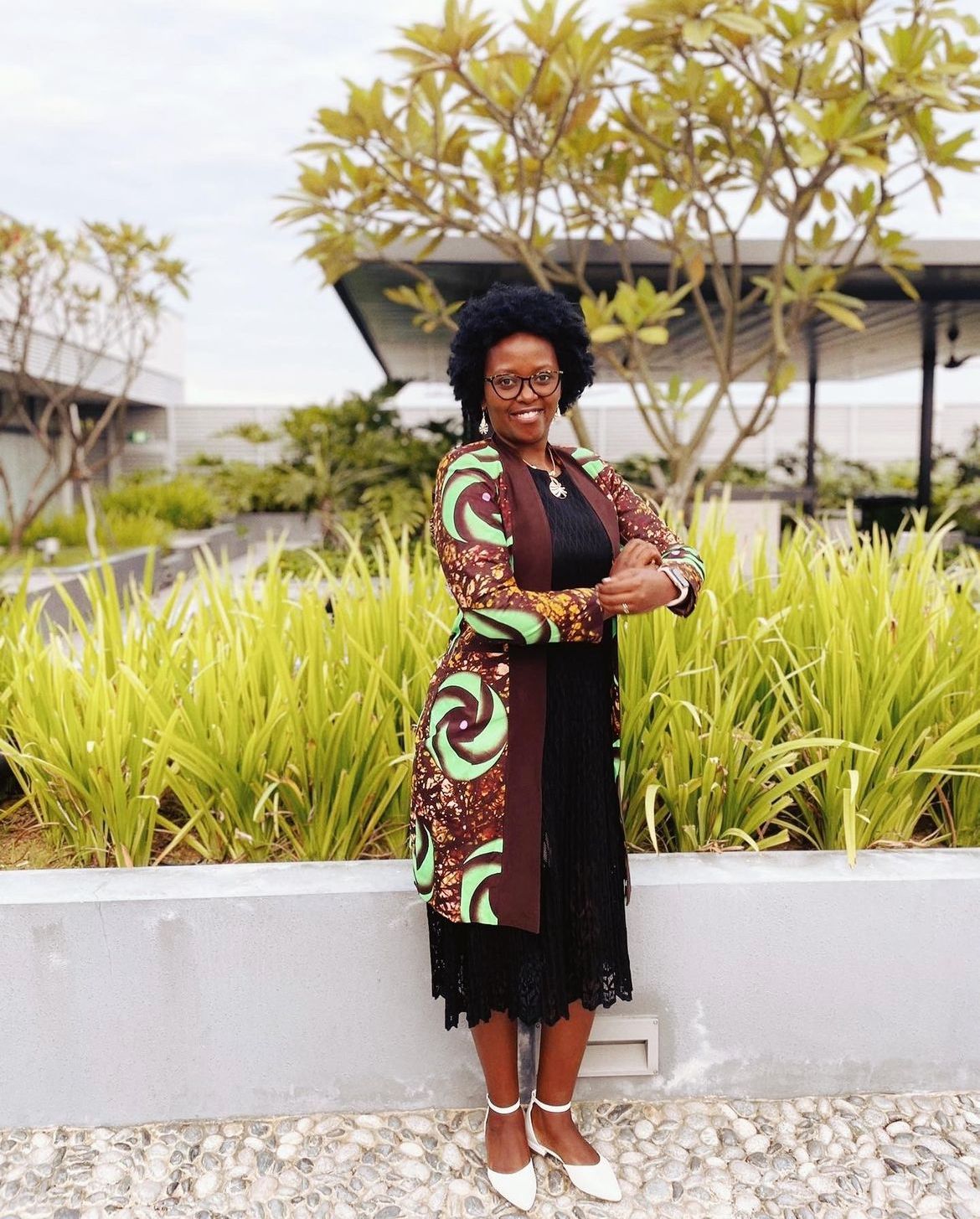
Pacifique in the garden of Tung Ling Bible School.
One of the modules that the students had to take was on prayer and fasting.
“I was fascinated because I wondered why Singaporeans, who seemed like they had everything they needed, fast and pray? What are they asking God for?” she mused.
The lecturer who was teaching that module was Rev James Jagjeet Singh. During ministry time, he would pray and prophesy over the students.
The past is in the past
As Rev James started moving towards her, praying for the students one by one, Pacifique was fearful. Because of her past, she felt too dirty and unworthy to be seen by God. She also did not want the people around her to probe about her past.
“The hate blinded me from seeing that I have a Father in heaven.”
So, she told God: “If he comes to me, I will accept whatever he tells me. But for me to believe that it is You speaking to me, he has to tell me A, B, C or D.
When Rev James started praying for her, he told her everything she had just requested of God. He did not mention her past at all. Instead, he sensed that God was telling her that the past is in the past and to focus on the future.
“He is an Indian Singaporean and he did not know me at all. But when he was able to share with me my personal stuff, I knew God not only knows me, but He also loves me,” said Pacifique.
She felt a new sense of freedom from her past.
“But I still felt a hate against the people who killed my family and made me fatherless. The hate blinded me from seeing that I have a Father in heaven,” she said.
Bringing letters to the Cross
Her second major encounter with God during her time at Tung Ling Bible School happened during the Father Heart of God module when students are encouraged to pen letters to people in their lives who have deeply impacted them, and to bring those letters to a physical Cross the next day.
“I thought it was just an assignment, but I couldn’t stop crying. I couldn’t finish writing the letter.”
“I thought it was just an assignment, but I couldn’t stop crying. I couldn’t finish writing the letter,” said Pacifique.
As she brought her letters to the Cross, she felt God accepting her letters, and even more importantly, accepting her.
“He was asking me, ‘What have I not done for you?’ I realised that whatever happened did happen, but it was not my burden to bear. While I lost my earthly father, I was never abandoned as my Father in heaven had always been with me,” she said.
She felt the trauma, sorrow, anger and hate that she had been carrying for almost three decades leaving her, like a heavy sack dropping off from her shoulders.
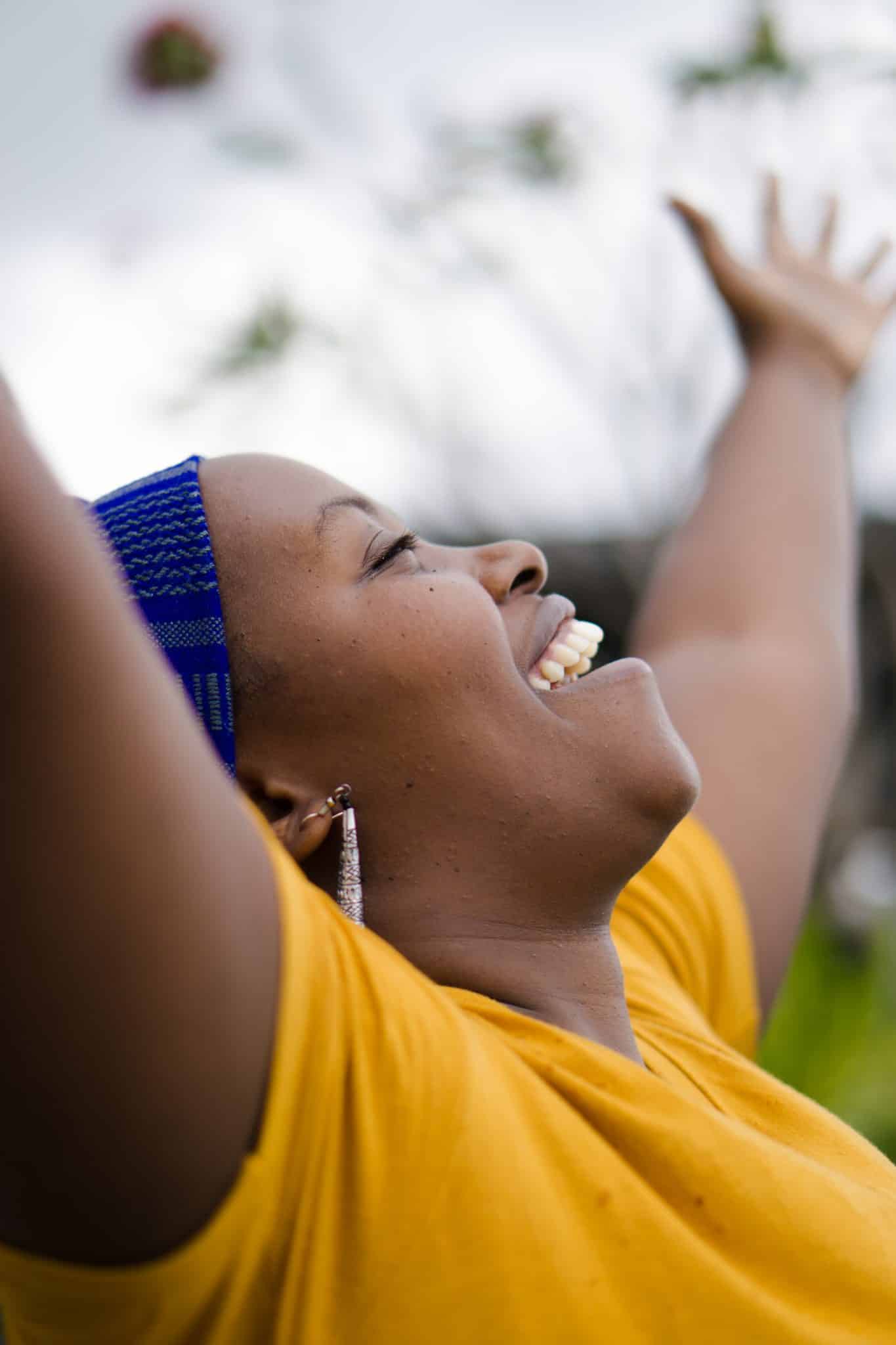
Pacifique finding freedom from her past.
“It felt like I suddenly lost weight! He took away all my fears and struggles in the blink of an eye – all He needed was my repentance and surrender.”
Seeing the Hand of God
Facing her fears, her spiritual eyes were suddenly opened and she began to see the various moments in her life when God had been a Father to her.
“It felt like I suddenly lost weight! He took away all my fears and struggles in the blink of an eye.”
She recalled that the day she had left home was the day they had had meat in the house.
“We rarely have meat to eat. But if I had stayed that day and not left, who knew if I would still be alive today?” said Pacifique, who also remembered how God had protected her as she passed through the roadblocks and foraged in the forests of Congo where rapes and deadly snake bites had been common.
What does healing and freedom from the past look like for her?
She knows that healing is a journey that never ends. When the national commemoration day came around in the year that she was attending Bible school, Pacifique still needed support. She reached out to her friend for prayer.
“The difference is now I know how to deal with pain – allow yourself to feel the sadness but not to let the sadness or memories take over completely,” said Pacifique.
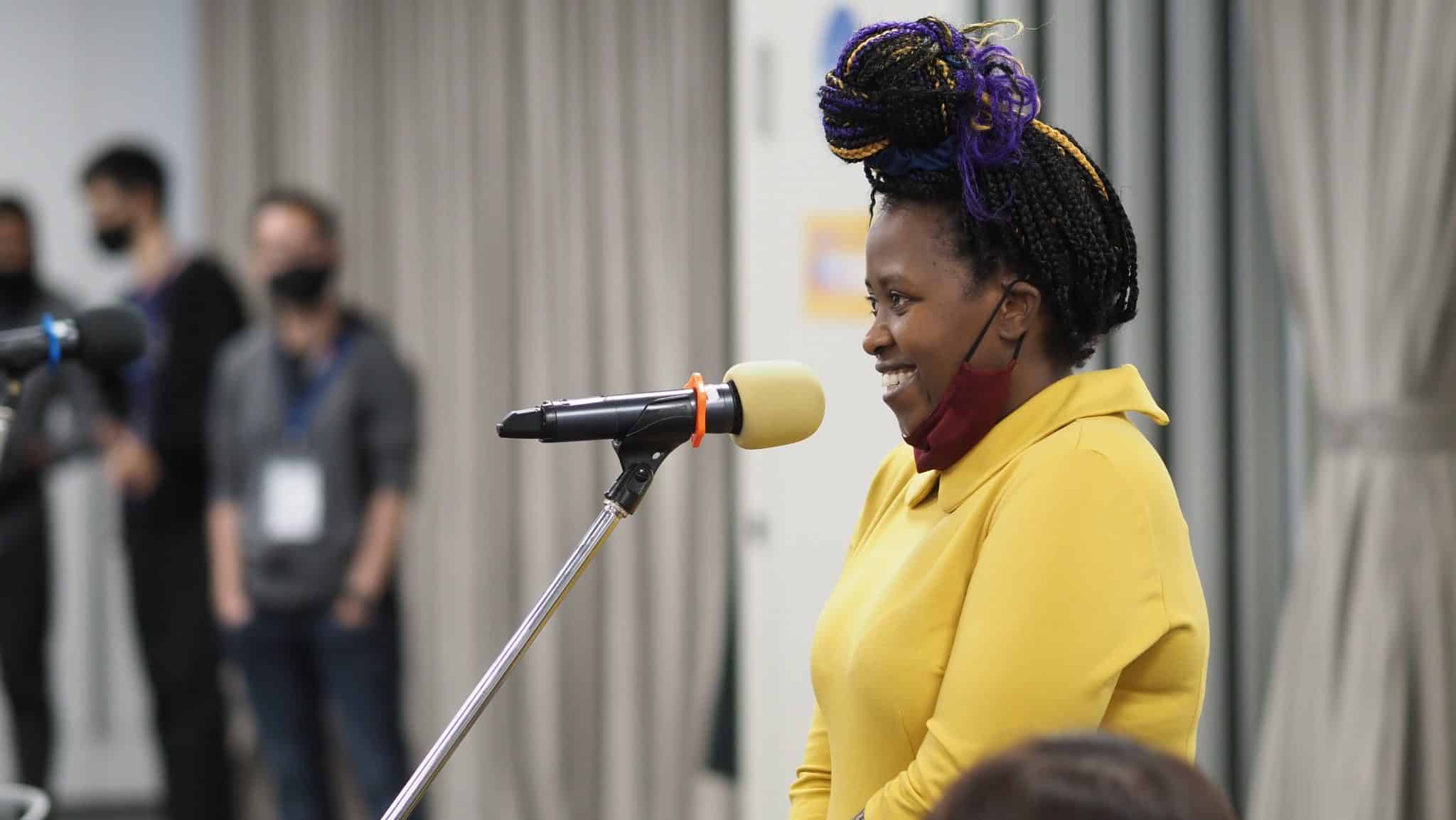
Pacifique sharing her testimony with her fellow students at Tung Ling Bible School.
Last year, when she returned to Rwanda for the national commemoration day, she was such a picture of calm, offering water and words of comfort to others, that people started asking her how God had healed her.
Full circle
During that trip, she unintentionally found herself transported to her childhood hometown.
“I was helping a friend to take care of her child and I didn’t know I would end up in my old community.
“That was the scariest thing for me and I could only pray to God to help me be willing to go wherever I am needed, though my flesh is weak,” Pacifique said.
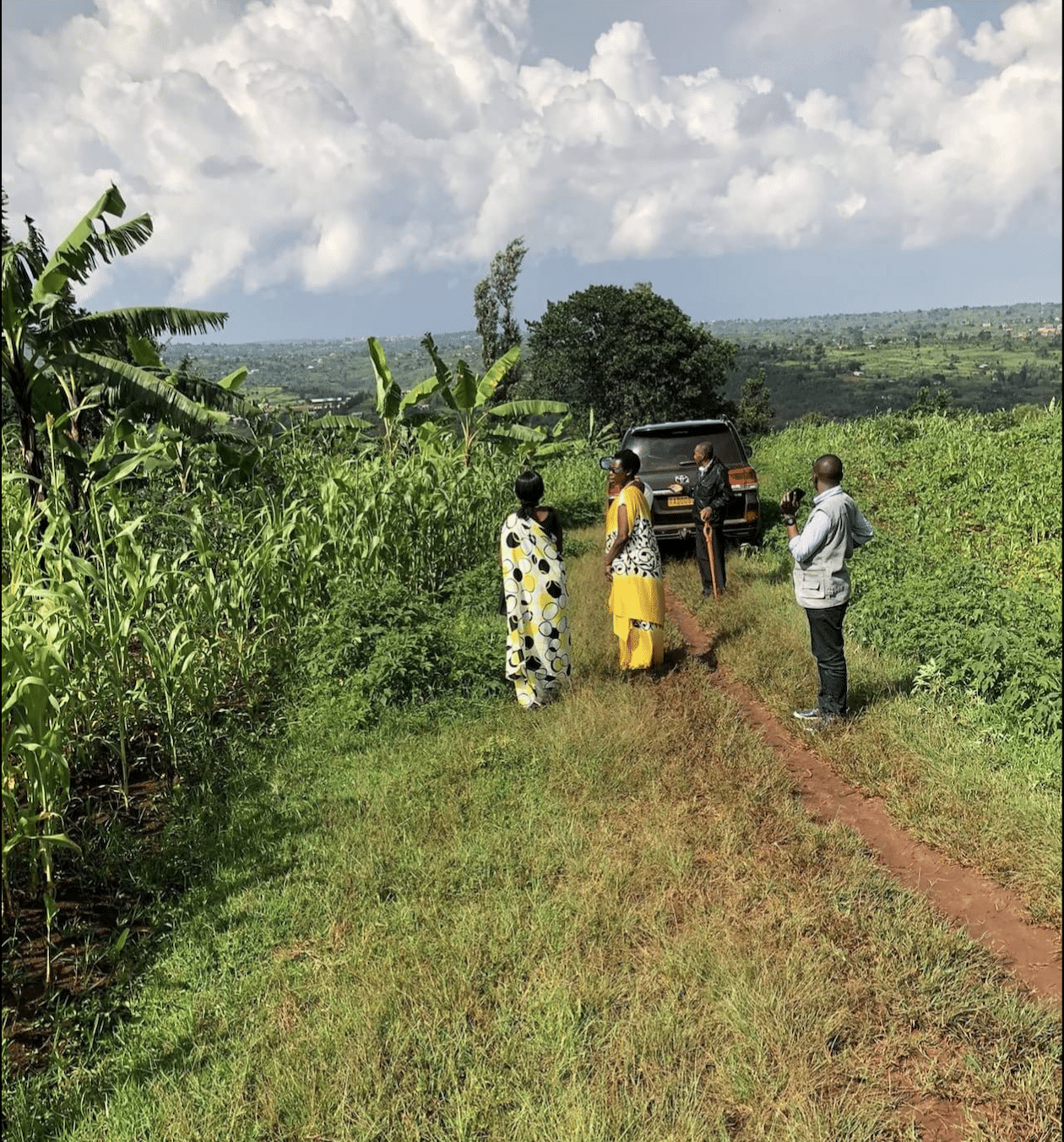
The area where Pacifique grew up. Before the genocide, it was filled with houses and families.
She was taken to a house in the community where the woman of the house asked Pacifique where she was from.
“What are you doing in the house of your father’s killer?”
“People here knew everyone, so I wasn’t comfortable telling her my exact origins. I simply told her I was from an area not far away,” recalled Pacifique.
She took a photo with the woman and posted the picture on her family group chat.
While she was still in the house, multiple text messages came in fast and furious.
“What are you doing in the house of your father’s killer?” her mother asked agitatedly in a message.
Pacifique learnt, to her shock, that her family had identified her father’s killer when he was spotted wearing her father’s trousers after his death. That killer was the husband of the woman whose house she was now in.
Her father’s attacker, the woman’s husband, had since died.
Upon learning this horrific news, Pacifique became scared and started praying in her heart.
Tell me where you are from
As she began to make her exit, the woman said to her: “You can’t leave until you tell me where you are from.”
Pacifique boldly told her the truth, and the realisation of their shared history starting sinking in for the woman. She began to cry and apologise to Pacifique, saying that she had tried to dissuade her husband from killing Pacifique’s father.
Pacifique found herself remaining calm and collected.
“I told her I do not hold this against her. Her husband was already dead and he would be judged if he had not repented. I told her that God had saved her life and my life so that I could be around to talk to her today,” said Pacifique.
After Pacifique’s visit, she began going to church and shared her testimony of how Pacifique had impacted her life.
“Having that conversation with her proved to me that I had made peace with my past and that the hand of God was upon me,” Pacifique told Salt&Light.
Sharing the incident with her hurting and angry mother also opened up conversations about God and faith. Her mother eventually followed Pacifique to church and allowed her to buy her a Bible.
Her mother witnessed how her daughter could finally go to the commemoration day without crying and wanted the same healing for herself.
This Good Friday and Easter hold special significance for Pacifique. She knows that Jesus not only died for her sins, but His resurrection also confirms His presence in her life.
“He is alive and in my life. Jesus overcoming death helps me to overcome my struggles and show radical forgiveness,” said Pacifique.
Though her family is based in Singapore for now, she has been making yearly visits to Rwanda. During her last trip, she shared her story on radio and a number of the listeners came to Christ.
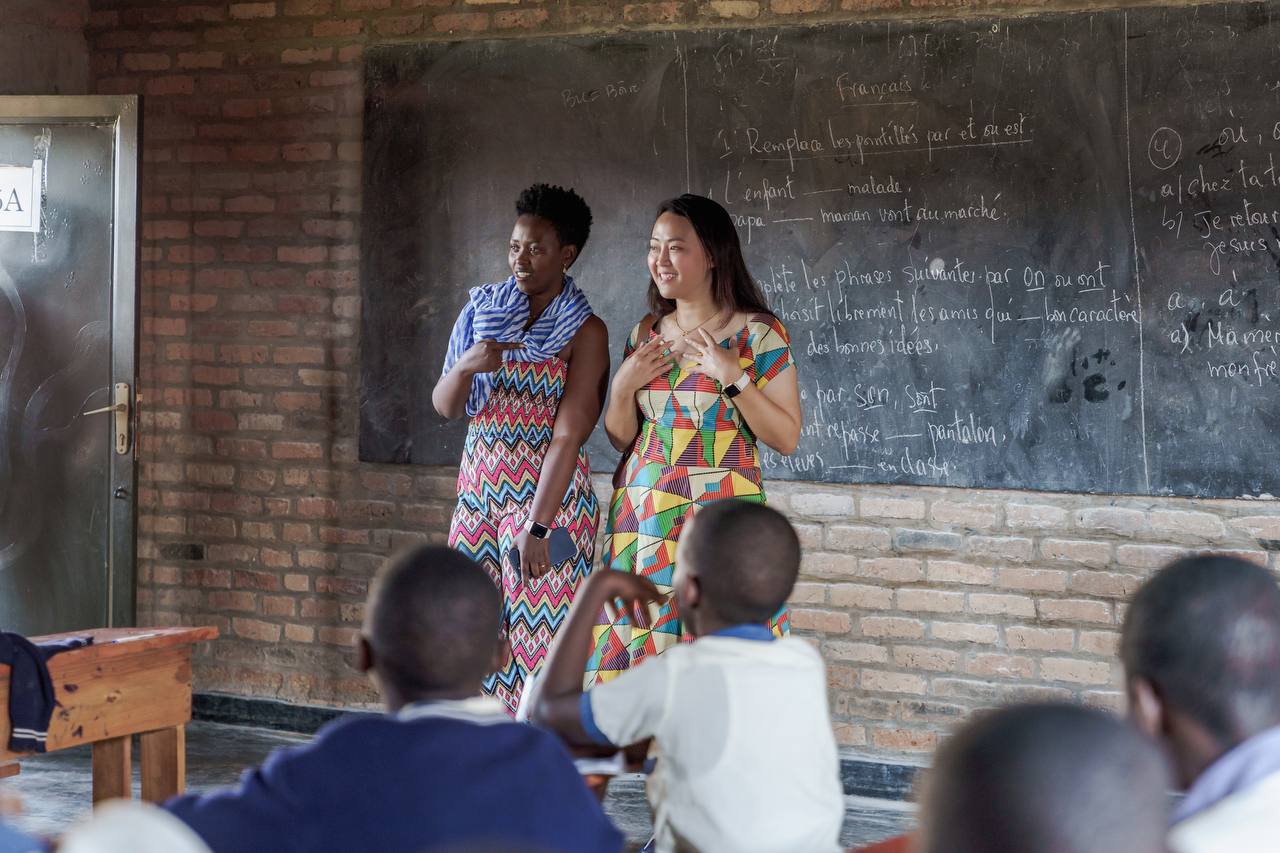
Pacifique and her friend Baoyan sharing God’s love with the children in a school in Rwanda.
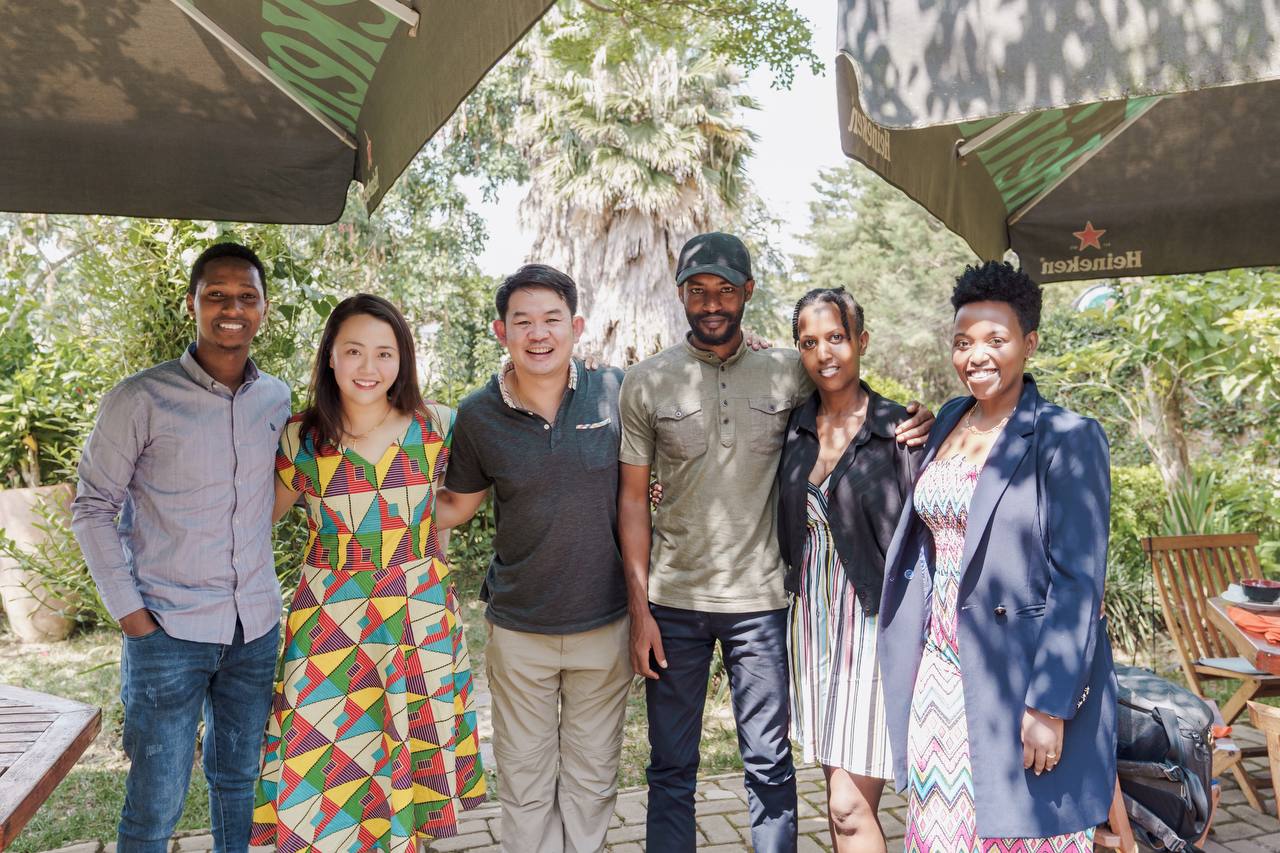
Pacifique (extreme right) with Baoyan and Rudy (Singaporeans who are doing missions work in Rwanda and Ukraine) and a well-known worship leader and songwriter in Rwanda. They are making plans for a large evangelistic meeting in Rwanda to reach out to street kids and marginalised women.
Pacifique’s dream is to be used by God to bring revival to Rwanda.
“There are many people who were once like me – their souls are trapped in anger.
“They need help but they don’t know they need help. I want to be the church to them and help them experience the love of Christ and the joy they can have in Him.”
RELATED STORIES:
Break my heart, Lord, for what breaks yours: Refugees, missions and you
“I believe God prepared me”: A 9/11 survivor remembers the day that changed the world
Two weeks on, the world’s eyes are still on Ukraine. Are ours?
We are an independent, non-profit organisation that relies on the generosity of our readers, such as yourself, to continue serving the kingdom. Every dollar donated goes directly back into our editorial coverage.
Would you consider partnering with us in our kingdom work by supporting us financially, either as a one-off donation, or a recurring pledge?
Support Salt&Light
